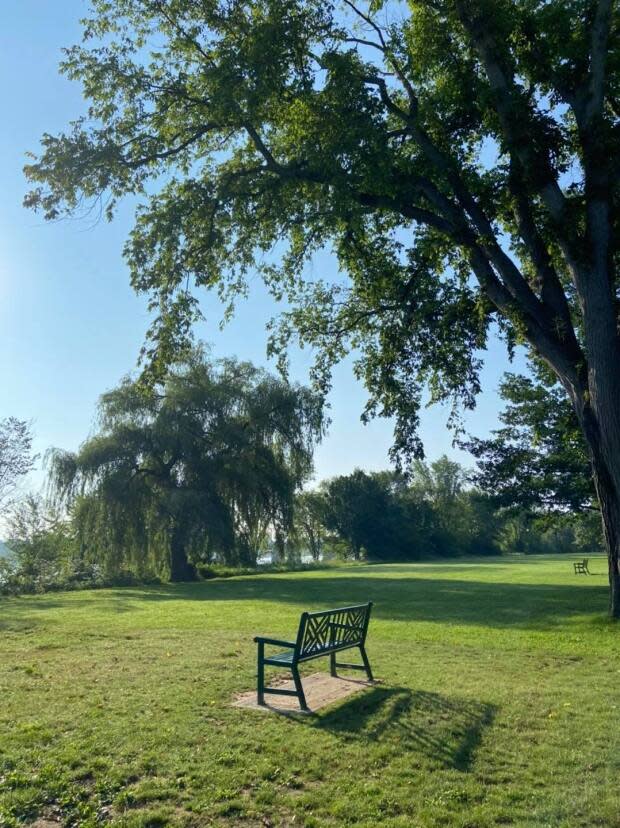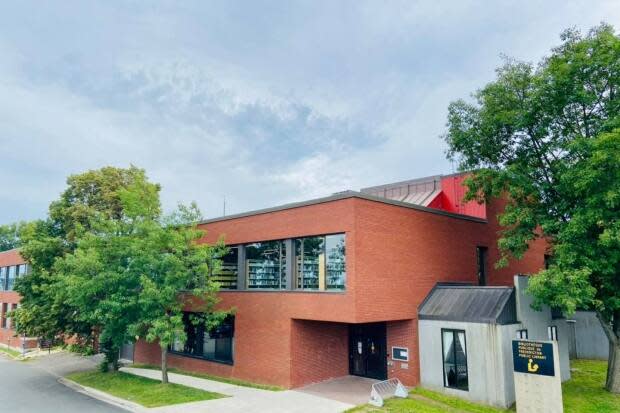Project reveals human side of homeless people in Fredericton

The Fredericton Homeless Shelters are trying something new this summer to let the public get to know the people who work and stay there.
All this month they've been posting profiles on their Facebook page of shelter staff and guests as part of a project called Humans of the Shelters.
"We wanted to put some nice stuff out there about who we really are," said executive director Warren Maddox.
The shelters normally don't reveal anything about their clients because they want to protect privacy.
These profiles don't include faces or full names, but they do provide a bit of background on personal histories, likes and thoughts on life.

"Our residents aren't all criminals and whatever. Obviously they have their challenges … but there's good people who are our residents, and there's absolutely amazing people that are working to try to help them get to a better place in their life."
One of the residents, for example, is Emily, whose favourite spot is by the river.
Emily's Humans of the Shelter profile says she became an alcoholic at the age of 14 and later became addicted to cocaine. She's been to detox a couple of times and seen an addiction counsellor. She still relapses with booze from time to time, "but it's going a lot better than it used to." She's on a waiting list for rehab. She'd like to become a tattoo artist and start her own business
Emily said she's met people from all walks of life at the shelter. She takes inspiration from those who've gotten clean and sober.
She'd like people in the city to be kinder.
"Working downtown and seeing the people on the streets every day and seeing how people just walk by or hearing people say things about them. They need to stop being so closed minded."

Mark-from-McAdam's favourite spot is the Wilmot Park basketball courts.
Mark's profile says he ended up homeless because he "thought with the wrong head." What he looks forward to each day is a Tim Hortons coffee.
He's met a lot of nice people at the shelter, but doesn't like it when they wake him up in the middle of the night.
In five years, he hopes to have completed his GED and a hairdressing course and to have his driver's licence.
He walks when he's "stressed out," talks when he's "aggravated," and keeps to himself when he's depressed.
It turns his day around if he can help someone else or make them feel they are not alone.
"I try to do whatever I can to make everybody else a little bit happier in the run of a day."

An unnamed shelter guest said their favourite place in the city is the duck pond at Odell Park.
They grew up on farms in Ontario, but moved around a lot, living in seven foster homes and two group homes starting at the age of eight.
This person has brain cancer and has been sober for two years now.
They enjoy woodworking and dream of a place by the ocean.

Maddox said the Humans of the Shelter project was conceived by Vanessa Foss, donor relations co-ordinator for the shelters and manager at Grace House.
The response has been good, he said. Many people have been making positive comments.
Maddox said he hopes it helps the wider community become more comfortable around homeless people.
Another new thing this summer that is also helping, he said, are the police-sanctioned "micro" tent encampments.
Maddox remains firmly opposed to large "tent cities."
But having several smaller ones spread out around the city with porta-potties and garbage collection seems to have alleviated some of the issues, he said.
Police officers are chatting with tenters daily and building collaborative relationships.
"They're referring people back to us or John Howard," Maddox said. "And we're getting them engaged in the system and trying to work with them and get them into housing. And figure out what kind of supports they need."
Permanent housing remains a "massive challenge," said Maddox, and many different options are needed.
Meetings are happening now, he said, to start planning for winter.

